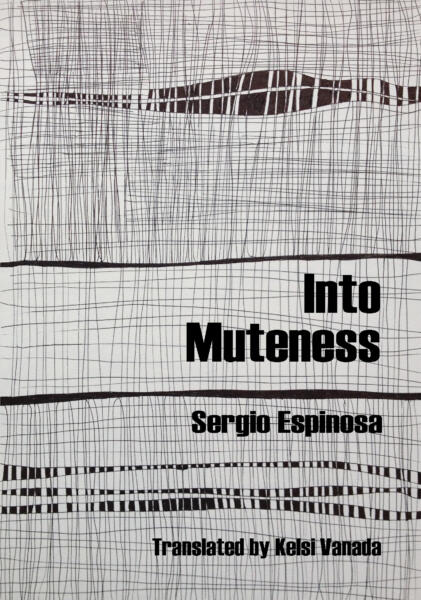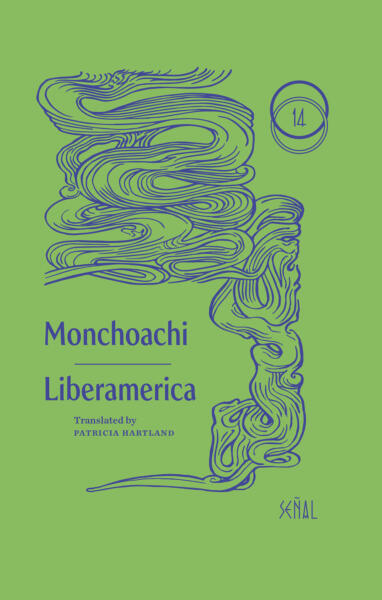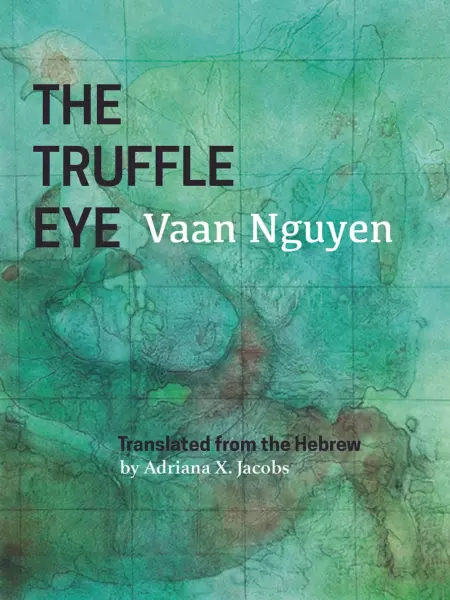
Curated by Katherine M. Hedeen
Reviewing poetry in translation
- recognizes translators as authors
- destabilizes narrow definitions of originality, authenticity, and authorship
- makes visible the artistry of translation
- is dissent, defiance, disobedience, subversion, solidarity
Where better than the Action Books Blog to do the work?
Micro-reviews of poetry in translation coming at you every few months right here!

Sergio Espinosa. Into Muteness.
Veliz Books, 2020.
140 pages.
$18.00.
Sergio Espinosa’s first collection Into Muteness, translated by Kelsi Vanada, attempts the seemingly impossible: to give a voice to muteness. In his excruciating and lyrical poems, Espinosa sifts through the “ash of language,” exploring themes of illness and isolation that render him silent. His world is one of clouds, smoke, and anesthesia, and the chilling loneliness which comes from being trapped in their haze.
I built
your mouth but not your word you hoisted yourself
like a sea breeze you opened my mouth and when I
spoke only fog emerged
Espinosa manipulates language and structure, magnifying the uncertainty that ripples through this collection. As I progressed through the book, I noticed how certain words and phrases resurfaced in different contexts that spun their meaning in a new direction or changed it completely. Some poems act as mirrors, reflecting the ideas of the poem on the opposite page, while others are linguistic “distortions” of poems by other writers. In all of Espinosa’s poems, phrases carry momentum, colliding with each other in the middle of a line or stopping abruptly at the stanza’s end. Vanada’s meticulous translation sizzles “hot like language still newly born” and follows Espinosa as he moves deeper “into muteness.” Though even as ambiguity pervades, the poems manage to be grounded in the corporal world through the recurring imagery of the body as Espinosa explores the intricacies of illness.
in the nook of a light rotting between thousands of kilometers of
veins a light lies down the nook becomes
a corner becomes a white room of autocracy mine
is the flesh shriveled by luminosity
Light bounces off of Espinosa’s poems and just as it can expose darkness and vulnerability, so too can it fill us with hope. He describes finding love, even amidst suffering:
with you I smell salt
with you I glimpse what
with you I smell salt and hear children
and their strange elation that doesn’t shut off so
I wanted to light all the streetlamps with my chest
In moments such as these, Espinosa reveals how even within the longest silences or the thickest fog, it is possible to find connection. Into Muteness expresses what is unsayable, and as the reader accompanies the poet on his journey through language (and the absence of it), they will feel less alone. —(RB)

Radna Fabias. Habitus. Trans. David Colmer.
Deep Vellum Press, 2021.
118 pages.
$15.95.
Radna Fabias’s debut collection Habitus advances geographically, temporally, and thematically—almost narratively—yet at the same time feels resonantly still, as though each line echoes the entire collection. (I think of the way a city is, over decades of development, the same city.) These poems try to grasp the speaker’s whole world, presenting the reader with multi-page torrents of images—in “demonstrable effort made,” “the applicant” learns to tolerate everything from “the full country/the flat, rectangular landscapes/the well-fed cows” to “the polemic/the postmodernism/the somethingism”. As David Colmer discusses in his thoughtful translator’s note, where he elaborates on the collaborative approach he and Fabias took to this translation: “Rather than squeezing her poetry into English, the idea was to cut the cloth of English wide enough to fit her poetry.” The cut cloth is immense – dizzyingly so.
Fabias presents these images flatly and without judgement, but in context, she grapevines between moments of beauty/intimacy and biting, ironic assessments of the speaker’s surroundings. Take these lines from opening poem “what i hid”, for example:
the way everything is surrounded by sea
the way everything is scorched by the sun
the horror
the tourists
0000000000000000000000000000000000000000always smile at tourists
0000000000000000000000000000000000000000that’s called manners
the sun
the blue
the impossible blue of the sky
the impossible blue of the sea
the fishermen in boats floating on the impossibly blue, transparent sea
the sand
the washed-up fish tails on the white sand
the white sand against the impossible blue of the sea
the white sand that looks suspiciously like the dust
the dust
Here, a wry, imperative voice fixates on the tourists, but this kind of humor permeates every thematic concern in the book, from femininity (“my personal ad has been reduced to the essence:/fem. wants to laugh/lol”) to the speaker’s experience migrating from Curaçao to The Netherlands (in a poem called “inspection on arrival”: “eyelashes: not counted, she’s got them, they’re dark/eyes: large, dark brown, conspicuously present as is/nose: conspicuously ethnic”).
These imperatives ring throughout the collection like internalized voices: “if it’s just the tip, you’ll never get pregnant” one advises in “capital”. They often intrude just as Fabias spins through language, as she refracts “blue” from sky to sea above, inviting tensions between the observational and the instructive onto the page.
At play with these observational poetics are the many cinematic metaphors in Habitus, which evoke everything from ironic vistas of a romanticized Caribbean to the sexualized and racialized gazes to which the speaker is subjected. In “action”, this metaphor beams out towards the reader. I’ll let it do the same to you:
without it being clear why, a directorial voiceover intrudes on the dialogue
postmodernism is in play everyone talking at cross-purposes or to the wall
there is no catharsis because there is no herothe director now says that clichés do not exist so it must be a documentary he says
the shards are real and so is the tarnished tinfoil
nothing rhymes so it must be real
—(AW)

Monchoachi. Liberamerica. Trans. by Patricia Hartland.
Ugly Duckling Presse, 2020.
40 pages.
$12.
Compelled by “the dissonant friction between expression and language,” Patricia Hartland translates Monchoachi’s Liberamerica with the urgency of speech—or “life-action”—itself. While this text comes to its reader in pamphlet form as part of Ugly Duckling Presse’s Señal Series, Hartland asserts that what resides on the page is not static but something plural, “polyglossic chant-songs.” They translate, then, with ears attuned to the sonic and cultural tensions between Kreyol, French and English—and eyes ready to enact the poem’s play with orthography and experimentation alike. What balances on the page—a kind of music—is poetry at its most fluid, situated dynamically on the axes of life and death, humanity and divinity, masculinity and femininity.
Sun and moon and heather
000000They multiply by three
They multiply by three the fantasies
00000000000Anatole Kreyol
00000000000Anatole mounted ‘pon metal
00000000000Djèp pãnyòl bo’l nan djòl
00000000000a’spañol wasp kisses on th’ maw
They multiply by three
000000the fantasies trooly reeyally
000000000000000000Magyck
00000000000in’all ell’gance she’ll be ‘f l e c t e d
000000000000000000000beauteous w’men!
In their act of translation, Hartland prioritizes Martinican Kreyole over French, recognizing the “Antillean histories and colonizer abuses” and how standard English bears its own hegemonic weight. Hartland unsteadies language (its very first word, which could be literally rendered as “women,” appears as “w’men”) to probe the capacities of the page, the meaning(s) therein: “The apostrophe digs into the ground of the word, unsettling the silt of it. What once seemed whole, smooth, determined, is gouged by irresolution, becomes a porous microcosm of possibility.” Hartland invites their reader into the process of translation, as the reader’s meaning-making process necessitates sonic association, imagination. In Liberamerica, translation is a kind of creation—the becoming of language. —(AR)
 Vaan Nguyen. The Truffle Eye. Translated by Adriana X. Jacobs.
Vaan Nguyen. The Truffle Eye. Translated by Adriana X. Jacobs.
Zephyr Press, 2020.
120 pages.
$15.
“Truffles are notoriously difficult to domesticate,” writes Adriana X. Jacobs, the translator of Vaan Nguyen’s poetry collection The Truffle Eye, which came out last December from Zephyr Press. While much attention has been and will likely continue to be paid to Nguyen’s background, Jacobs, in one phrase, sheds light on the enigmatic core of this book.
Vaan Nguyen has been slipping expectations from the moment she was first published. Her parents hail from a small wave of Vietnamese refugees accepted by the Israeli government as a ploy to garner international goodwill. She grew up in Jaffa. Reviewers of The Truffle Eye, when it came out in Israel in 2013, were fond of describing it as multicultural and exotic, even though the poems inside rarely obliged. In “Culture Stain,” Nguyen writes, “When we hold each other / you’ll ask where I came from. I’ll say / I came from this rot.”
As Jacobs points out, Nguyen’s language is ever-shifting. She stuffs an image with meaning then swallows the key. The brief poem “Man” ends “I served you an awful fig, / a frog casserole.” Striking, abrupt. Similarly, the poems’ speaker, a distant cosmopolitan observer, changes scenery and lovers without fanfare, sometimes within the same stanza: “At the synagogue, the holy corner. At the Messiah, next / to Broadway!” The truffle metaphor thus speaks as much to Jacobs’ efforts to convey these multiplicities as it does to the readers’ own relationship to Nguyen’s work. In the final eponymous piece of the collection, a man wakes up and decides to become a woman with truffle eyes. She spends the rest of the day staving off masses of men who want her eyes: “Open up, they thunder. You’re interesting!”
A book like this, with an author whose identity is bound to draw notice, will receive its share of questions: Is it political? Is it unique? Is it interesting?
The answer: Yes. Sure. Maybe. See for yourself.
—(JS)
Rose Bialer is the Assistant Interviews Editor for Asymptote. She teaches English in Madrid, Spain.
Katherine M. Hedeen’s latest translations include from a red barn by Víctor Rodríguez Núñez and prepoems in postspanish and other poems by Jorgenrique Adoum. She is a Professor of Spanish at Kenyon College and a Managing Editor of Action Books. www.katherinemhedeen.com.
AM Ringwalt is a writer and musician. The author of The Wheel (Spuyten Duyvil), her work appears or is forthcoming in Annulet, Music & Literature, Black Warrior Review and La Vague. She is a contributing blogger for Action Books.
Justin Sun is from San Jose. He lives in Chicago.
Austyn Wohlers is a writer from Atlanta, Georgia.